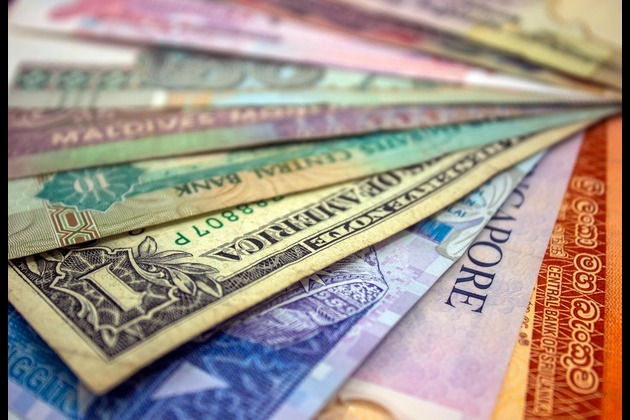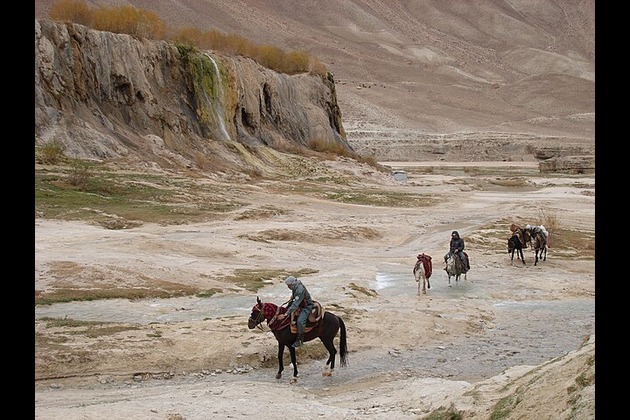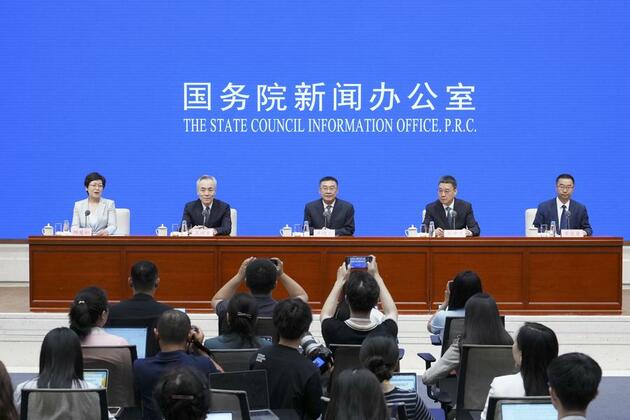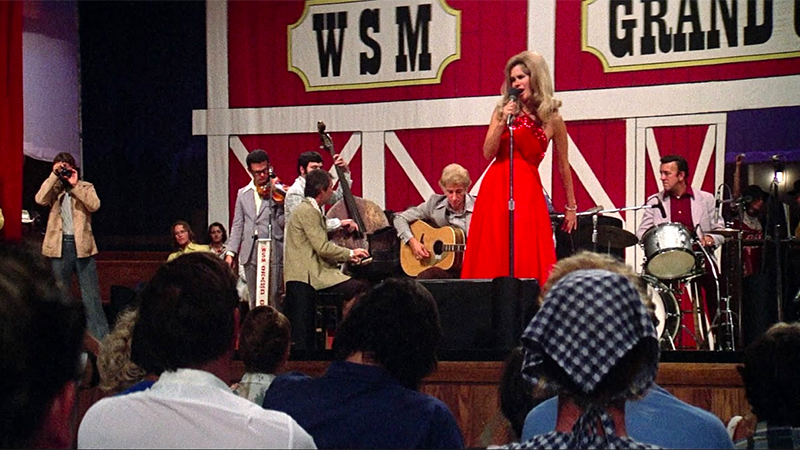Napoleon: Tyrant or genius or both
France24
02 May 2021, 19:07 GMT+10
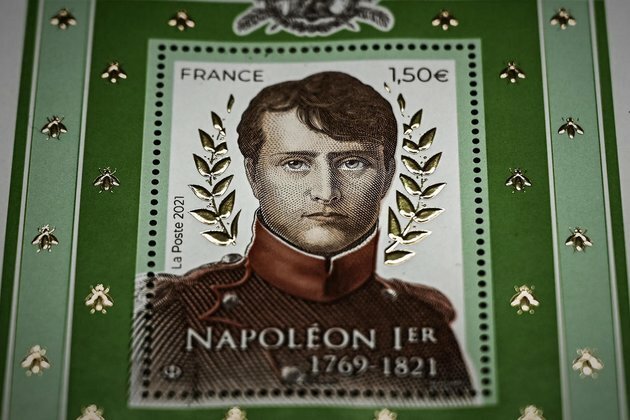
On May 5, 1821, Napoleon Bonaparte died aged 51, imprisoned on the isolated British outpost of St Helena in the south Atlantic. The diminutive Corsican who went from obscure French artillery officer to the Emperor dominating continental Europe is still a fierce subject of contention 200 years after his death. Was he a visionary genius or brutal tyrant - or indeed a combination of the two?
Renowned early-19th century French writer and diplomat Francois-Rene de Chateaubriand summed up the fraught ambivalence Napoleon has long provoked: "This man whose genius I admire and whose despotism I abhor."
In France many Bonaparte fans call him "the Eagle" - lauding an ingenious military strategist who spread liberal French Enlightenment ideals throughout the continent. Detractors cast him as "the Ogre" - a blood-stained megalomaniac who restored slavery and whose wars plunged Europe into chaos.
FRANCE 24 discussed the many facets of Napoleon Bonaparte - and the politics of memory surrounding him - with Charles-Eloi Vial, author of several books on him including Napoleon - La Certitude et ambition ("Napoleon: Certainty and Ambition").
Napoleon's rise was meteoric: He was just a young artillery officer from France's furthest periphery in Corsica when the Revolution broke out in 1789, rose to the fore when he saved revolutionary France's ruling Directory in 1795 by facing down royalist insurgents, became First Consul of the Republic in 1799 and was crowned Emperor of the French in 1804. Was he a brilliant visionary or a horrible tyrant?
Both terms are arguably too strong. One has to see the nuance in history - that Napoleon shouldn't be seen in black and white but rather in shades of grey. His rule over France had some very positive aspects, most notably in terms of modernising administration. But he was highly authoritarian. You can definitely see that he favoured the French revolutionary ideal of equality over that of liberty - in ways that look shocking today. But more than a visionary or tyrant, Napoleon was quite simply a human being - with all of a human's virtues and flaws.
Bonaparte's vision took him to great heights from obscure origins - making him Emperor at 35. But it was also hubristic - as demonstrated by his disastrous 1812 invasion of Russia, his foolhardy decisions to go back to war in 1813 and 1814, his stubborn refusal to sign a peace deal and then, of course, his flight from Elba and final defeat [at the Duke of Wellington's hands] at Waterloo in 1815. Napoleon's vaulting ambition was his downfall.
To start with everything was a success, especially in military campaigns on land - such as his victory against a larger Austrian and Russian force at Austerlitz in 1805, exactly one year after his coronation as Emperor. But Napoleon was intoxicated by this triumph. He didn't know how to ease off.
Napoleon said that he loved war like an artist. He was very much at ease on battlefields - where he could display his extraordinary military skills, which even his bitterest enemies readily acknowledged. Bonaparte's main objective was to defend revolutionary France until 1808. At that point, you can see his ambition carried him away. In the Peninsular War in Spain - and especially in Russia - it was clear that Napoleon was waging war for an idea of glory. The stakes got higher and higher, the death toll mounted and the battles became even more blood-soaked.
It has often been said that Napoleon didn't really care about human pain - was this really the case?
First-hand testimonies give contradictory views on this. Some people who knew Napoleon described him as completely insensitive - but others said he was very attentive if anyone was sick, and his letters show him urging his wife and his brothers to take particular remedies when they were ill.
You could say that there was a difference between how he acted as a military leader and how he acted in his private life. His order in 1804 to kill plague-stricken French soldiers in Jaffa [in modern-day Israel] who were fighting in his Egyptian campaign has always been regarded as a sign of heartlessness.
But at other times - even on the battlefield, where he would force himself to be callous - he was deeply moved by the horrors of war, especially after the [ferocious, inconclusive] Battle of Eylau [against Russian and Prussian forces in 1807], where he was shaken by the image of blood-soaked snow.
Napoleon is understandably admired in France for creating the modern, centralised state - and the extraordinarily influential Civil Code legal system he formed in 1804. But the Code imposed a patriarchal model, affirming married women's legal incapacity. And after his famous marriage to Josephine de Beauharnais, he dumped her because she did not produce an heir. Would it be appropriate to call Napoleon a misogynist?
Napoleon was no immune to the prejudices of his time - although it should be noted that the Civil Code, deeply flawed though it was, gave women a certain degree of legal status. There was a difference, meanwhile, between the letter of the law and conditions on the ground in Napoleonic France: A lot of recent archival research shows that many women developed independence as the sole managers of businesses and farms during that period.
Bonaparte used the prejudices of the time to discredit enemies such as Germaine de Staël [a French woman of letters famous for urging political moderation].
However, he held many women in high esteem, seeking advice from many including Josephine. More than that: He was the first political leader to give a woman responsibility for a diplomatic mission, in the case of the Countess of Brignole in 1813. He also appointed his second wife, Austrian archduchess Marie-Louise as his regent, signing imperial decrees in his place for a year and a half.
As First Consul, Bonaparte decided in 1802 to reinstate slavery "in accordance with the laws prior to 1789", after the Convention then ruling France abolished it in 1794. At present, this is the main criticism made against Napoleon. Is this criticism justified?
Napoleon was ambivalent about slavery: He freed hundreds of slaves in Malta in 1798, then forcibly enlisted slaves in the army he sent to Egypt weeks later. For years, one of his closest servants was a former slave, the Mamluk Roustam Raza dit Roustan.
The re-establishment of slavery was an atrocious moral failing. It was shocking at the time and quite rightly still shocks us today. Bonaparte was arguably acting without sufficient thought, seeking short-term economic gains in the pursuit of stability; this was sadly symptomatic of his approach to power - in which calculations of expediency too often cast aside great ideals.
He probably ended up regretting this decision - as suggested by his order to end France's role in the slave trade during his brief return to power in 1815.
That said, it is very good that the issue of slavery is being addressed when people think about Napoleon today.
Two hundred years on from Napoleon's death, there are some in France who say we should not commemorate his bicentenary - do you agree with them or not?
The question is what exactly we should be commemorating in 2021. The way I see it, above all else it's a matter of remembering that the death of Napoleon marked the end of an extraordinary, tragic, complex chapter in France's history that started with the Revolution in 1789.
His actions made a colossal mark on the lives of millions of French people who lived under his reign and we should perhaps focus as well on remembering their various experiences - whether as soldiers or civilians.
The bicentenary is also an opportunity for historians to take stock of and to publicise nearly six decades of research since the bicentenary of his birth in 1969 - which was a landmark in the shift from a public image of Napoleon as just an ingenious force of nature to a much more nuanced understanding of his character.
The issue of slavery in the Napoleonic First French Empire has been increasingly explored through archival research - as well as the history of homosexuality and that of women during this era, and more technical questions about the workings of the Napoleonic administration.
There is still a lot to discover about Napoleon, even though he's one of the most studied historical figure in the world. So the hype around the bicentenary is an excellent opportunity to make the most recent academic research known to as many people as possible. And if there is an aura of controversy, that's arguably because critical historical analysis has come to influence the public perception of Napoleon at the expense of earlier myths and legends.
This article was translated from the original in French.
Originally published on France24
 Share
Share
 Tweet
Tweet
 Share
Share
 Flip
Flip
 Email
Email
Watch latest videos
Subscribe and Follow
Get a daily dose of International Travel News news through our daily email, its complimentary and keeps you fully up to date with world and business news as well.
News RELEASES
Publish news of your business, community or sports group, personnel appointments, major event and more by submitting a news release to International Travel News.
More InformationBusiness
SectionStandard and Poor's 500 and and Nasdaq Composite close at record highs
NEW YORK, New York -U.S. stock markets closed with broad gains on Thursday, led by strong performances in U.S. tech stocks, while European...
Persson family steps up H&M share purchases, sparks buyout talk
LONDON/STOCKHOLM: The Persson family is ramping up its investment in the H&M fashion empire, fueling renewed speculation about a potential...
L'Oreal to buy Color Wow, boosts premium haircare portfolio
PARIS, France: L'Oréal is making a fresh play in the booming premium haircare segment with a new acquisition. The French beauty conglomerate...
Robinhood launches stock tokens for EU investors, adds OpenAI
MENLO PARK, California: Robinhood is giving European investors a new way to tap into America's most prominent tech names — without...
Wall Street diverges, but techs advance Wednesday
NEW YORK, New York - U.S. stocks diverged on Wednesday for the second day in a row. The Standard and Poor's 500 hit a new all-time...
Greenback slides amid tax bill fears, trade deal uncertainty
NEW YORK CITY, New York: The U.S. dollar continues to lose ground, weighed down by growing concerns over Washington's fiscal outlook...
Travel and Tourism
SectionTaliban seeks tourism revival despite safety, rights concerns
KABUL, Afghanistan: Afghanistan, long associated with war and instability, is quietly trying to rebrand itself as a destination for...
Native leaders, activists oppose detention site on Florida wetlands
EVERGLADES, Florida: Over the weekend, a diverse coalition of environmental activists, Native American leaders, and residents gathered...
UN offer rejected in Dreamliner crash investigation
NEW DELHI, India: India has decided not to allow a United Nations (UN) investigator to join the investigation into the recent Air India...
Ajman Tourism launches 2nd 'Self-Exploration through Tourism' summer training programme
AJMAN, 4th July, 2025 (WAM) - Following the resounding success of its first edition, the Ajman Department of Tourism Development (ADTD)...
China to hold extensive cultural events marking 80th anniversary of victory against Japanese aggression, fascism
BEIJING, July 3 (Xinhua) -- China will organize an array of cultural events to mark the 80th anniversary of the victory in the Chinese...
Twice-Weekly Route to Northern Italy Announced from Varna Airport
Wizz Air, recognized as the most environmentally sustainable airline across Europe, the Middle East, and Africa, is expanding its route...






